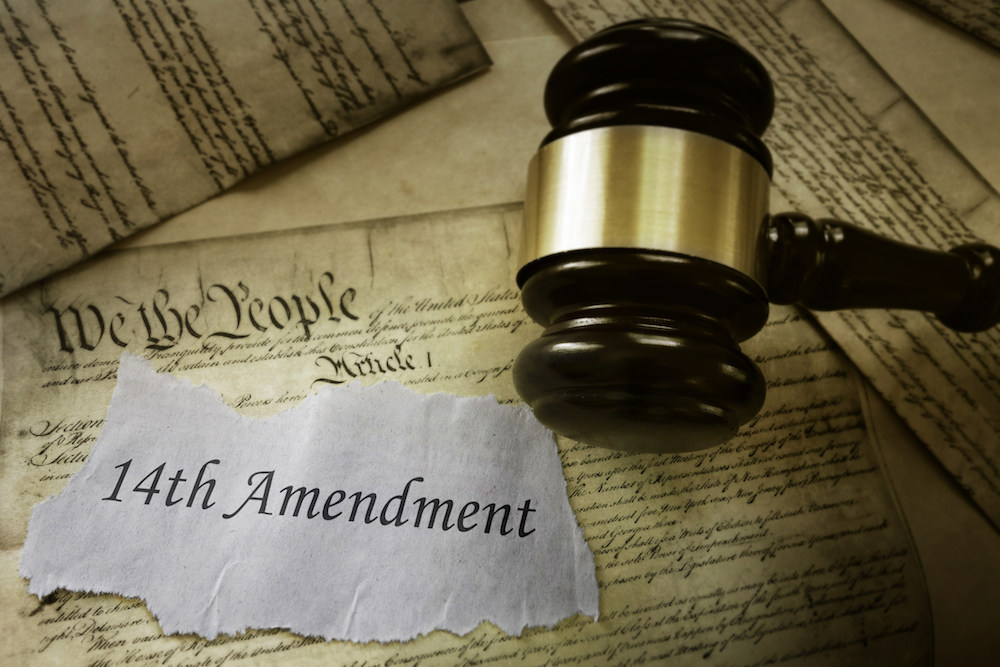
Image courtesy of Shutterstock.
Moderated by Madeleine Brand, Host, KCRW’s “Press Play”
Since its adoption in 1868, the 14th Amendment of the U.S. Constitution has inspired advances in legal rights by guaranteeing U.S. citizens and people in the country “the equal protection of the laws”—except when it hasn’t. From Jim Crow to the World War II-era incarceration of Japanese Americans, from racist police corruption to bans on interracial and same-sex marriages, American governments—federal, state, and local—have repeatedly and systematically discriminated against people despite the Amendment’s clear promise of equality. How can we defend equal protection when our governments won’t? What does the Amendment’s “equal protection” really protect us from, when equality remains so elusive? And—as this summer marks the 30-year anniversary of the U.S. government’s “redress” apology and compensation for the incarceration of Japanese Americans—how can we best remember the lessons of past violations of the 14th? Go for Broke president and CEO Mitchell Maki, Johns Hopkins legal historian Martha S. Jones, National Immigration Forum executive director Ali Noorani, and University of Baltimore constitutional law scholar Garrett Epps visit Zócalo to examine the difficulties of enforcing equal protection.
111 N. Central Ave.
Los Angeles, CA 90012
The Takeaway
Why America Keeps Battling to Live Up to the 14th Amendment
From Its Post-Civil War Origins to Today’s Immigration Debates, the Constitutional Guarantee of Equal Protection and ‘Birthright Citizenship’ Has Been Bitterly Contested
The first clause of the 14th Amendment is a scant 28 words long. Yet when the amendment was adopted on July 9, 1868, it advanced the crucial task of turning …







